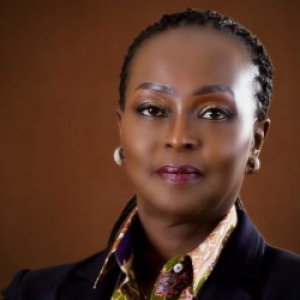Honourable Gail Teixeira, Minister of Parliamentary Affairs and Governance
Honourable Ministers of Government
Honourable Ganesh Mahipaul representing the APNU/AFC party
Members of the Opposition,**
Colleagues of the Diplomatic Corps**,
Shaikh Moeen ul Hack, Chairman, Commissioners and CEO of the Ethnic Relations Commission,
UN colleagues, friends,
Good afternoon.
I am pleased to join you today as we observe the International Day for the Elimination of Racial Discrimination. This year marks the 60th anniversary of the International Convention on the Elimination of All Forms of Racial Discrimination (CERD). The adoption of the Convention was a pivotal moment: a time when there was energy and determination that followed the end of World War II and ensuring that lessons for all of humanity were documented, codified and implemented to prevent and mitigate similar atrocities. It was at a time when the global fight against racism was forged amidst the civil rights, anti-apartheid, and decolonisation movements of the 1960s.
This Convention was the first of the United Nations’ (UN) core international human rights treaties that sets out concrete steps countries must take to combat racist doctrines, promote understanding, and build a world free from racial discrimination.
Today, the Convention remains the cornerstone of global efforts to eliminate racial discrimination. It serves as a vital tool not only in addressing traditional forms of discrimination but also in confronting growing challenges, including the rise of hate and division fueled by deepening inequalities and those who seek to exploit them for their own gain.
The UN Secretary General in his message today has called on all States to implement CERD in full, and urges business leadership, civil society, and all people to take a stand against racism in all its forms, and to take action to make the spirit of the Convention a reality. This is our shared responsibility.
Guyana signed the Convention in December 1968, just two years after gaining independence, underscoring its early and steadfast commitment to combating all forms of racial discrimination. All of you here know better than I do the immense efforts, investments, laws, and institutions that have been created to eradicate racial discrimination, including the creation of the Ethnic Relations Commission.
Happy anniversary to the Commissioners who were sworn in on this day 2 years ago. Your service to fostering harmony and eliminating racial discrimination is commendable.
The UN System in Guyana has a proud history of collaborating with the Ethnic Relations Commission, which I believe started on a conflict transformation project in 2005. We continue to collaborate on common goals, and within the past year alone, we have launched and implemented a countering hate speech initiative. This included a Memorandum of Understanding signed between UNDP Guyana and the ERC aimed to enhance knowledge base surrounding hate speech and institutional capacity to map, assess and counter disinformation and hate speech. There have also been mutual training exchanges, with the ERC providing training for our staff and vice versa, in areas of understanding xenophobia, tolerance and diversity. Plans are underway for other capacity-building and institutional strengthening activities.
These collaborative efforts are in line with the UN’s Strategy and Plan of Action on Hate Speech, launched by the Secretary-General in June 2019, giving the UN the room and the resources to address hate speech, which poses a threat to international principles, values and programmes.
The United Nations remains committed to supporting Guyana’s efforts to eliminate all forms of discrimination. We stand ready to collaborate with the Government, Constitutional and statutory bodies, and all stakeholders to jointly undertake measures so that racism and discrimination have no place in our societies.
The 60th anniversary is an opportunity to renew our commitment to eliminate racial discrimination, move beyond rhetoric, strengthen policies and laws to promote and protect equality and inclusion; create spaces for intercultural dialogue to foster understanding and; create opportunities for young people, women, indigenous people and persons with disabilities to engage in peace and reconciliation efforts.
Let us work together to create a future where diversity is celebrated, inclusion is the norm, and justice is a reality for all.
Thank you.



